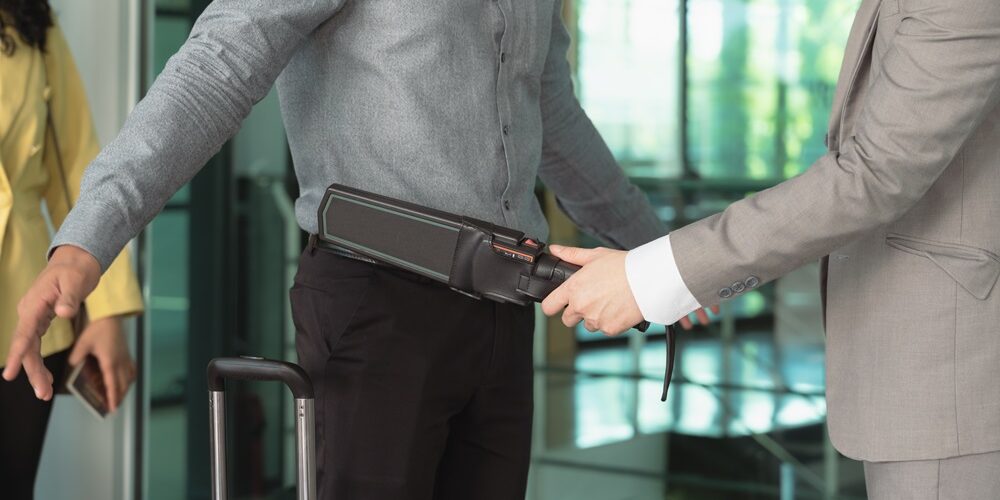
When you think of air travel security, long lines at TSA checkpoints might come to mind. But what about private jet travel? Do passengers flying on private aircraft go through the same rigorous security checks as commercial airline passengers?
Private jet passengers do undergo security checks, but the process is often quite different from what you’d experience at a commercial airport. The primary goal remains the same: ensuring the safety of passengers, crew, and aircraft. However, the methods and intensity of screening can vary significantly.
Overview of Security in Private Aviation
Private aviation operates under a different set of regulations compared to commercial airlines. In the United States, the Transportation Security Administration (TSA) oversees security for both commercial and private flights, but the rules are not identical.
Key Differences in Security Procedures
Passenger Screening: While commercial passengers go through metal detectors or body scanners, private jet travelers often undergo less invasive checks. This might involve a simple identification verification or, in some cases, a walk-through metal detector.
Baggage Checks: Private jet passengers’ luggage is typically subject to less stringent screening. Often, bags are visually inspected rather than x-rayed, though this can vary depending on the facility and flight details.
Prohibited Items: The list of prohibited items for private jets is generally less restrictive than for commercial flights. Since people sometimes charter flights for hunting, guns are allowed. However, ammo and guns must be stored in separate containers. The keys are held by the plane’s captain until landing.
Traveler Programs: Many private jet passengers are part of programs like the TSA PreCheck® or Global Entry, which can further streamline their security process.
Access Control
Private Terminals (FBOs): Fixed-Base Operators (FBOs) are the private terminals used for private jet travel. FBOs typically offer enhanced security measures, such as private security personnel, secure access points, and surveillance systems.
Controlled Access: Access to private jets is tightly controlled. Only authorized personnel and passengers are allowed near the aircraft, and FBOs use secure entry points to manage who can access the jet and its surroundings.
Security Personnel
Private Security Firms: Services can include onboard security personnel, secure transportation to and from the aircraft, and personal security for high-profile clients. Sometimes travelers may request private security when the destination poses a heightened safety risk. Lastly, certified armed security must be onboard when traveling near Washington DC.
Airport Security Staff: Private jet operators often collaborate with airport security staff to ensure comprehensive security coverage. This collaboration helps integrate private jet security with broader airport security measures.
Enhanced Security Options
Additional Security Measures: Private jet travelers can request additional security measures, such as enhanced screening procedures or armed security personnel. These measures are tailored to the specific needs and preferences of the client .
Custom Security Protocols: Private jet operators are known for their flexibility in customizing security protocols. This customization can include specific requests from clients, such as discreet security checks or particular safety arrangements based on the destination.
Private vs Commercial Airline Security
Similarities and Differences: While both private jets and commercial airlines follow strict security protocols, private jet security is often more flexible and personalized. Unlike commercial flights, private jet travelers typically avoid long lines and extensive wait times .
Efficiency and Convenience: One of the main advantages of private jet travel is the efficiency and convenience of security checks. Passengers can arrive at the FBO shortly before departure, undergo swift security procedures, and board the aircraft without the delays common in commercial airports.
The Future of Private Jet Security
Technological Advancements: The private aviation industry is continuously adopting new technologies to enhance security. Biometric screening, advanced surveillance systems, and AI-powered threat detection are among the innovations being integrated into private jet security protocols.
Evolving Threats and Responses: As security threats evolve, private jet operators are proactive in updating their security measures. This includes regular training for security personnel and adopting the latest security technologies to stay ahead of potential risks.
Private jet travel offers a unique blend of luxury, convenience, and security. While the security protocols may differ from those of commercial airlines, they are no less stringent.
Private jet operators, in collaboration with regulatory bodies and private security firms, ensure that passengers enjoy a safe and secure flying experience. As technology advances and new threats emerge, the private aviation industry remains committed to maintaining the highest standards of security, making private jet travel not only a convenient choice but a safe one as well.
